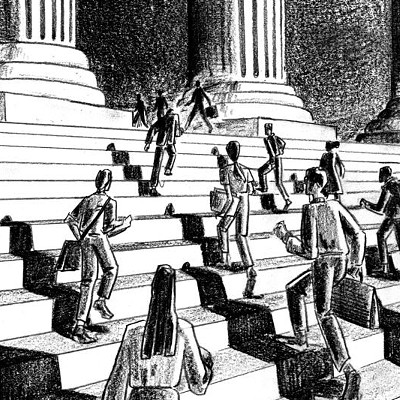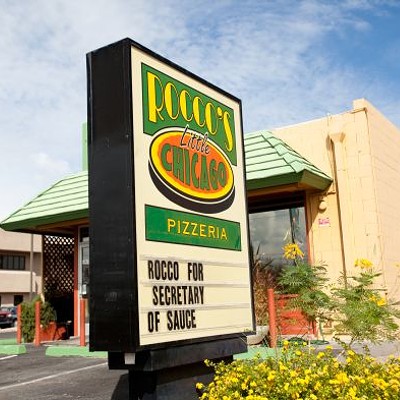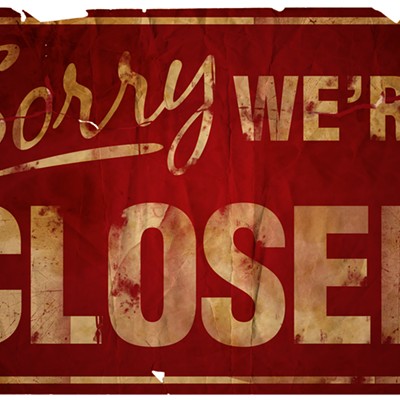Last week, the former campaign-finance supervisor at the Secretary of State's Office formed Arizonans for Fair Elections, a political committee that aims to ask voters to repeal the Clean Elections Act. To put the initiative on the November ballot, Finell's group would have to collect a minimum of 101,762 valid signatures from Arizona voters by early July.
Finell, who could not be reached for comment, told the press last week that he had concluded the program, which provides public campaign dollars to qualifying candidates, was a waste of money.
Funding from the program comes from a surcharge on civil and criminal fines, as well as voluntary contributions from taxpayers. Clean Election officials estimate the program could cost as much as $17 million this year.
Finell had barely filed his paperwork when supporters of Clean Elections formed their own political committee, Citizens to Protect Fair and Clean Elections, to oppose the repeal.
Cecilia Martinez, the executive director of the Clean Elections Institute (a non-profit group that monitors the Clean Elections program), said voters showed their support for the program when they narrowly passed it with 51 percent of the vote in 1998. The courts have since upheld the program as constitutional, although appeals are pending.
"The voters have already spoken and the courts have spoken repeatedly that Clean Elections is constitutional and legal," Martinez said. "For someone to be trying to put it on the ballot again is really an insult to voters."
Republican Mark Spitzer, who won a Corporation Commission seat last year using public campaign dollars, also opposes the effort to repeal Clean Elections.
"I think that Clean Elections is a very valuable mechanism for candidates that don't want to go the lobbyist/PAC route for raising money for their campaign," Spitzer said.
The former state senator clearly recalls his first run against a sitting lawmaker in 1992. Lobbyists supported his opponent simply because he held office, but once Spitzer upset the incumbent, the taps opened.
"When I was an incumbent, I didn't have to work too hard to raise money," Spitzer remembered. "It just sort of comes in."
That money buys access, said Spitzer, who has witnessed the influence lobbyists have. As a tax attorney, he can point to examples in the tax code that directly benefit special interests that make campaign contributions.
"Our system of elections that goes back 200 years and is the marvel of the world --there ought to be a little more to it than that," Spitzer said.
The extent of Finell's backing for the initiative remains a mystery. A local campaign strategist estimates he'll need at least $150,000 to gather enough signatures to force a vote and more to run an aggressive media campaign.
The initiative surprised some opponents of Clean Elections, who would rather wait for a few embarrassing scandals to erupt before they make their move against the program. "It's unwise at this time," remarked one political operative. "Let 'em screw up a few times before taking it to the voters."
DENNIS BURKE IS JUST the sort of candidate that the state's Clean Election program is supposed to help. As chief deputy to Arizona Attorney General Napolitano, Burke had been considering a run for the office himself this year as his boss leaves to take her shot at the governor's seat.
But last month, Burke decided against running because, he complained, the Clean Elections program simply doesn't give him enough money for a serious statewide campaign against his likely opponent, well-known Democrat Terry Goddard.
Unlike gubernatorial candidates, who are eligible for $409,950 for the primary and an additional $614,930 for the general election, candidates for attorney general are eligible for only $86,310 for the primary and $129,460 for the general. (In all cases, candidates are eligible for up to three times as much in matching funds if traditionally funded opponents break those limits.)
To qualify for matching funds, candidates for state office have to raise a minimum number of $5 contributions, ranging from 200 for legislative candidates (who must get checks from within their district) to 4,000 for statewide candidates.
The system is voluntary, but candidates who don't participate see the former maximum individual contribution of $320 trimmed by 20 percent, to $256.
"The amount of money they give for the AG's race is ludicrous," said Burke. "I get $86,000 for a primary against somebody who's run for governor twice?"
With roughly 830,000 Democrats on the voter rolls in the state, that comes out to little more than 10 cents per voter, which doesn't buy much in the way of mailers, much less phone banks and television spots.
Burke conceded he could raise funds the traditional way, but maintains that still puts him at a disadvantage in a Democratic primary. "I'd have to raise even more, because I'd just hand my opponent an issue and he would go out and say, 'Burke's running for AG and raising money from all these PACs and all these people.' "
Burke counts himself a supporter of the Clean Elections program, which he's even defended in court against legal challenges by its critics.
"In principle and theory and a lot of other respects, it a good act, but if you look at the amount they figured out for the AG's race, it doesn't make a lot of sense."
Spitzer agrees that funding could be increased for some statewide candidates. "They don't give you enough money under Clean Elections," he said. "I had $100,000 for the primary and general (elections) and that's really not enough to run a good race. I'd like to see them expand the limits.... I also don't think they give them enough in legislative races."
Legislative candidates are now eligible for $10,790 for the primary election and an additional $16,180 for the general election. They're also eligible for matching funds should opponents exceed that limit.
Spitzer said the drafters of Clean Elections set some of the limits low because they were "very sensitive to being attacked as creating a trough for politicians."
Martinez has heard similar complaints from other candidates.
"I don't know if I agree or disagree with that, but what I do know is that you have to run a different kind of campaign," she said, focusing more on grassroots support. As part of the program, the institute will survey candidates after the election to review concerns, including levels of campaign funding, she added.
Martinez says the Clean Elections Institute is proposing three changes in the law at the Legislature this year:
· Senate Bill 1286 would reverse a policy set by the Clean Elections Commission, the five-member body that administers the program. The commission recently ruled that candidates have only "one bite at the apple" for public funding. Candidates who fall short of qualifying must start collecting new contributions from scratch, without going back the people who gave them money during the first round.
Martinez says the new policy is "unfair and punitive. Candidates and their volunteers may make honest mistakes on $5 forms like we saw in the year 2000. With redistricting, people may be confused about what districts they are in."
Clean Elections officials say they made the decision to decrease the amount of paperwork they must exchange with local county recorders.
· SB 1051 would change the current law requiring election officials to mail candidate guides to every voter before every election. The Clean Elections staff hopes to change that requirement so that only one guide would have to mailed to each voting household before primary elections, with a notice that voters should keep the guide for reference during the general election. The change would save printing and postage costs.
· SB 2362 would expand public financing to campaigns for judges (who are elected outside of Maricopa and Pima counties) and justices of the peace.
Because the Clean Elections Act was passed by voters, changes must be approved by three-fourths of lawmakers in both chambers before going to the governor for her signature.

















